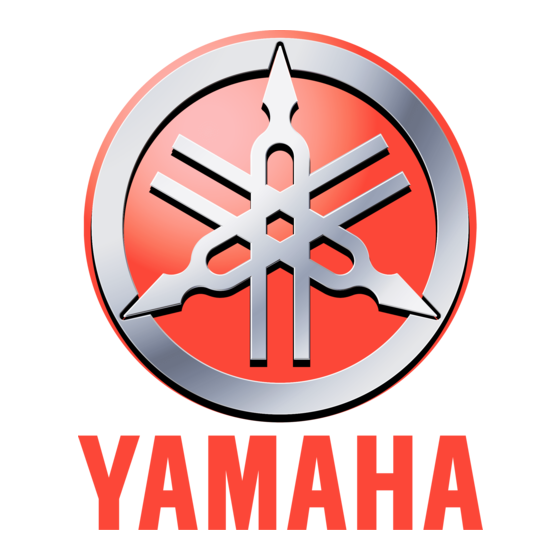Yamaha PortaSound PSS-580 Manual de instruções - Página 2
Procurar online ou descarregar pdf Manual de instruções para Teclado eletrónico Yamaha PortaSound PSS-580. Yamaha PortaSound PSS-580 50 páginas. Music station
Também para Yamaha PortaSound PSS-580: Manual de instruções (50 páginas), (Inglês) Manual de instruções (29 páginas)

INTRODUCTION
AQ
ÀJ
Congratulations on your purchase of the Yamaha PortaSound Р55-580!
@ An electronic keyboard offering 100 high-quality preset
voices using the famous Yamaha FM sound source.
• A digital synthesizer that lets you alter any of the preset
voices to taste and save up to five of these edited versions.
ө A versatile rhythm machine using 9 percussion instru-
ments, PCM recorded for breath-taking realism. With 100
basic rhythm patterns featuring three intros/fill-ins and
one ending each, you have an amazing 400 rhythm vari-
ations at your disposal. What's more, you can even record
your own original Custom Drummer pattern.
€ A sophisticated automatic accompaniment system giving
you Single Finger Chords, automatic
bass, chords and
orchestra, automatic Duet and orchestration capabilities.
€ A simple but very useful sequencer offering unique mu-
sical possibilities: You can digitally record up to five
melodies and chord progressions each and play them back
any time at the touch of a button.
ФА
highly advanced MIDI controller and multi-timbral
MIDI sound source. Used as a controller, the PortaSound
can play a number of external MID! instruments simul-
taneously on various channels.
As a sound source, it will
perform several voices as well as percussion independently
at the same time.
Read this manual carefully while playing your new Porta-
Sound, and you will be able to make full use of its many
fantastic features in no time.
ABOUT THIS MANUAL
„__----
___________________-___-_--_______-__-___|
One look at your new PortaSound Р55-580 tells you:
this is an advanced instrument with a great variety of func-
tions.
Though this is true, don't let the large number of
buttons fool you — the PSS-580 is actually very easy to use.
As you can see from the INDEX ILLUSTRATION on p. 6, the
controls are all organized in easy-to-understand functional
groups. Once you get to know them, you will have no trouble
operating your PortaSound, making it do exactly what you
want it to.
To get acquainted with your new keyboard and have fun
with it from the start, please read PART I first. You can then
use the INDEX ILLUSTRATION to look up information on
buttons or functional groups you are especially interested
in right away.
Otherwise, continue with PART II.
This manual is structured into three main parts. The shortest
and simplest one, PART | — GETTING TO KNOW
THE
PSS-580, gives you all the information you need to play your
new instrument, making use of its most basic features. It also
shows you how you can listen to the pre-programmed DE-
MONSTRATION song.
The functions mentioned shortly in the QUICK GUIDE illus-
tration of PART I are explained in greater detail in PART II.
Particularly if you already have some experience with digital
keyboards, the QUICK GUIDE will enable you to use these
functions immediately. On the other hand, if you are a total
newcomer, reading the next part will make operations clearer
to you.
PART И — BASIC FEATURES contains a systematic overall
introduction of WHAT YOUR PortaSound CAN DO, followed
by detailed explanations of most PortaSound functions. It tells
you all about voice and style selection, effects, the Auto
Accompaniment features and the Song Memory.
Each section starts out with a short Overview giving you a
general idea of the respective functions. You can then try
them out right away by following the steps described under
Operation. Note that in the text, bold print indicates basic
operational steps, while the regular print below it gives all
the necessary explanations. Therefore, you can simply follow
the instructions in bold print when you want to get to know
a feature, and read the details and Points to Remember later.
Finally, PART Ш shows you how to use those ADVANCED
FEATURES that require a bit of specialized know-how — the
Digital Synthesizer section to create your own FM sounds,
and the MIDI functions for communication with other MIDI
instruments, sequencers and computers.
